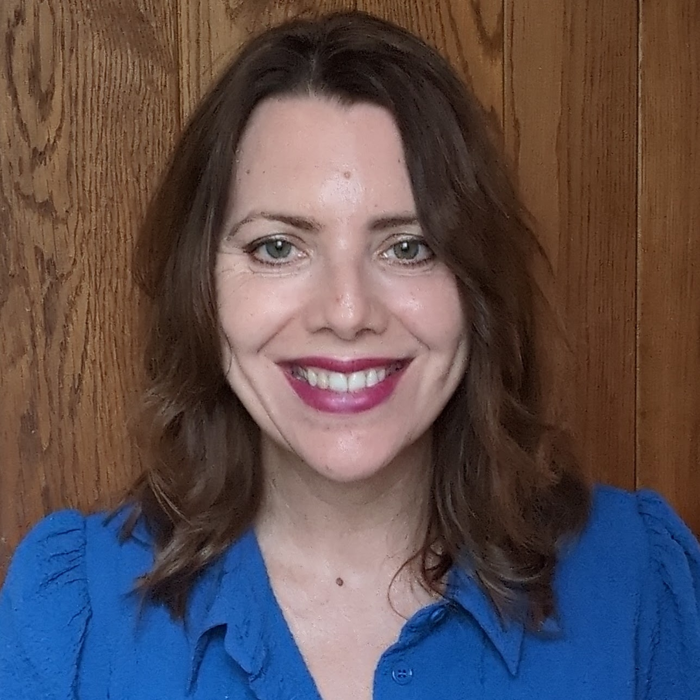Neuroscience-based Vocal Pedagogy
Thursday 22nd April 2021, 5:00 PM - 7:00 PM (London Time)
Neuroscience-based vocal pedagogy
Heidi Moss Erickson, B.A.Bio, B.Mus.Voice, M.Sci.
Research on the neurobiological underpinnings of vocalization is growing at a rapid pace. Scientists from varied disciplines contribute to this field, elucidating the process from diverse angles such as evolutionary biology, molecular biology, genetics, neuroscience, and social science. It is essential that singers, pedagogues, and voice scientists capitalize on this wealth of data outside of our own field to greater understand our instruments.
An integrative viewpoint of how and why we sing can refine the art of vocal pedagogy, demystifying long-held myths, and yield greater vocal efficiency: making singers better faster.
The goal of this lecture is to bridge the divide between traditional voice science and pedagogy with the most current research from other disciplines.
Specifically, we will explore:
- Vocal Learning: audiation and mimicry
- How to learn coloratura and riffs via patterns
- The importance of getting off the page and strategies to make written music more ‘singer-brain’ friendly.
- Using gesture to improve vocalization (and why it works!)
- Pitching strategies
- Reframing breath: a valve based system
- Character and emotion: playing with opposites
- Distraction as a tool
Vocal pedagogy should be a dynamic process, and the hope is that this exploration will encourage singers and teachers to think outside the box. Given the rapid pace of neuroscience research, dogmas can actually change in a short amount of time resulting in paradigm shifts that can be small or seismic. To that end, it is important to keep up to date on current trends via primary papers and taking note of the diverse minds in the field. We will finish the lecture with a bibliography of the wonderful scientists working on the neuroscience of vocalization.
Heidi Moss Erickson
Heidi Moss, is a Bay Area performer, educator, and scientist. Noted for her “rich and radiant soprano” (Edward Oriz, Sacramento Bee) has performed on national and international stages...
Sorry, this is an archived short course...
We have plenty of upcoming short courses coming soon. See details of some of them below or look at the full list of short courses.

Tuesday 13th January 2026
5:00 PM - 6:30 PM
Tuesday 20th January 2026
5:00 PM - 6:30 PM
Tuesday 27th January 2026
5:00 PM - 6:30 PM
Tuesday 3rd February 2026
5:00 PM - 6:30 PM
Tuesday 10th February 2026
5:00 PM - 6:30 PM
(London Time)
Introduction to Postgraduate Academic Skills - Join Live!

Debbie Winter
Are you ready to elevate your academic journey? Hosted by our very own Debbie Winter, join our comprehensive Introduction to Academic Skills course, designed to equip you with essential tools and strategies for success in higher education. Perfect for bridging the gap between undergraduate and postgraduate study, this course offers a pathway to our full MA for students without an existing degree. We offer both live, interactive sessions and standalone, pre-recorded content.

Thursday 15th January 2026
5:00 PM - 7:00 PM
Thursday 22nd January 2026
5:00 PM - 7:00 PM
Thursday 29th January 2026
5:00 PM - 7:00 PM
Thursday 5th February 2026
5:00 PM - 7:00 PM
Thursday 12th February 2026
5:00 PM - 7:00 PM
(London Time)
Trauma-Sensitive Voice Professional Certificate with Dr Elisa Monti

Dr Elisa Monti
Updated for 2026, this five-part certificate course is designed to help participants learn the theory and practice of trauma-sensitive approaches. The concepts and activities included are tailored to meet the needs of voice specialists who want to acquire more specific tools to navigate the space with their students and colleagues.

Monday 9th February 2026
5:00 PM - 7:00 PM
(London Time)
Certificate in Applied Voice Pedagogy with Adam Roberts

Adam Roberts
Spring Immersive - live and interactive learning! This 12-week online programme is designed for voice professionals committed to deepening applied voice pedagogy skills and advancing professional practice. The course offers a rich environment to reflect on your teaching philosophy and develop applied pedagogical techniques. It is ideal for voice teachers, coaches, therapists, and performers seeking to bridge foundational knowledge with practical, student-centered applications.
